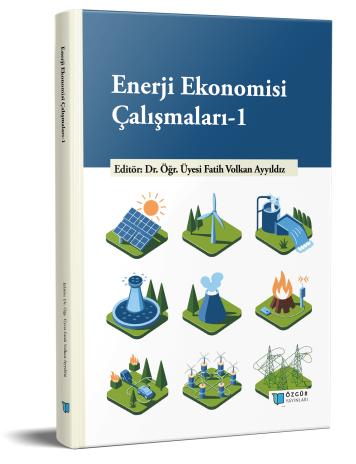
The Relationship of Energy Consumption, Economic Growth and Income Distribution: An Analysis on E-7 Countries
Chapter from the book:
Ayyıldız,
F.
V.
(ed.)
2025.
Energy Economics Studies 1.
Synopsis
There are many studies in the literature examining the relationship between energy consumption and economic growth, and it is concluded that there is mostly a co-integration relationship and causality relationship between these two variables. In addition, it is seen in the literature that the relationship between per capita income and CO2 emissions in the context of energy consumption is also discussed within the framework of the Environmental Kuznets Curve (EKC). In this study, unlike other studies in the literature, the relationship between energy consumption and economic growth is examined by taking into account income distribution. In this context, this study includes empirical analysis of the change rate of primary energy consumption, economic growth rate (GDP increase) and the Gini Coefficient representing inequality in income distribution. In the study, the relationship between these three variables is tested within the framework of panel data analysis for the period 2010-2023 in the sample of E7 (emerging 7) countries (China, India, Russia, Brazil, Mexico, Indonesia and Türkiye).
Within the scope of empirical analysis of the study, firstly cross-section dependency and unit root tests were performed in the context of panel data analysis, and panel estimation was performed with the Cross-Section Correlation Effects Group Mean Estimator (CCEMG) and Augmented Mean Group Estimator (AMG) after the co integration analysis developed by Westerlund and Edgerton (2007). According to the analysis results, it was found that there was a co integration relationship between these variables in the period 2010-2023 in the case of E7 countries. The positive relationship between energy consumption and economic growth variables was also revealed in the analyses made with model estimators. In this context, in the analysis made with the CCEMG estimator, it was determined that a one-unit increase in the economic growth rate increased energy consumption by an average of 1.58 units in the 2010-2023 period in the case of E7 countries. Within the framework of empirical analysis, it was concluded that a one-unit increase in the economic growth rate increases energy consumption by an average of 0.65 units according to the AMG estimator. According to the CCEMG and AMG estimator, in the model where energy consumption is the dependent variable, the sign of the Gini coefficient variable was found to be negative and was not statistically significant in the context of the relationship between energy consumption and income distribution.

